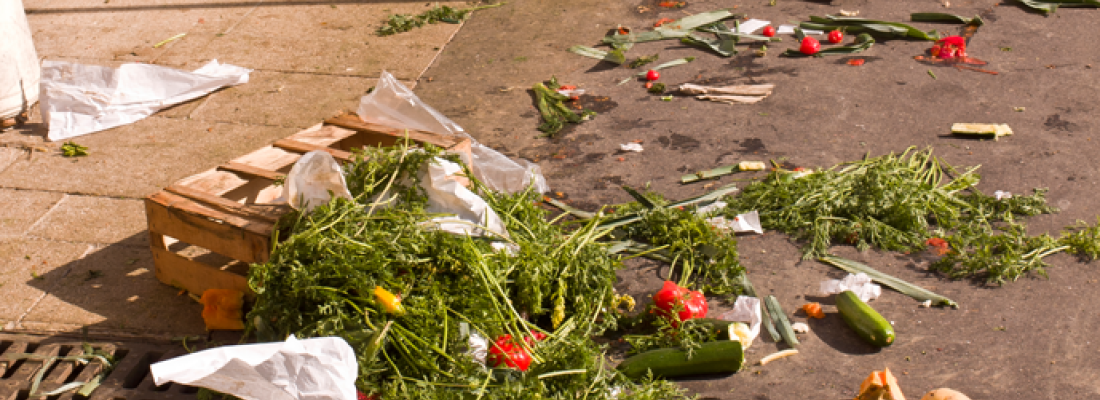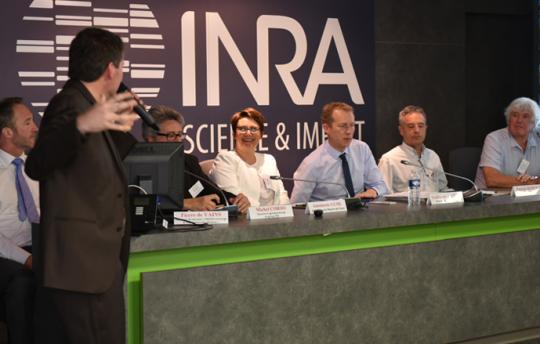Food, Global Health Reading time 4 min
Reducing food losses and waste in an increasingly urban world
Published on 06 August 2016

In industrialised countries, three-quarters of the population live in urban areas. Between now and 2050, two-thirds of the world's population will be urban. Although these areas concentrate the production of waste, they are also catalysts for innovations and technologies. Because of increased awareness of the limits to global resources and the necessity to improve their management, as well as the food deprivation suffered by the poorest households and the challenges of food security, there now seems to be consensus regarding the need to reduce food losses and waste. This has resulted in a possible ranking of their re-use: act first of all at source to limit losses by optimising supply chains to urban areas or redistributing products to more deprived families; cook or process fresh products that cannot be stored any longer before using them for livestock feed, and finally recycle biowastes for non-food uses; for example, to generate energy.
Nine levers for action that could be deployed in three urban development contexts
Reducing waste at the source or increasing its recycling
Following a review of the actions proposed or tested by urban communities, businesses or citizens, the experts who compiled this study identified nine different actions that could reduce waste at source or improve its subsequent recycling:
- introduce taxes or fees in order to modify behaviours,
- render distribution specifications more flexible to enable the recycling of products with a defective appearance or nearing their expiry dates,
- implement gradual withdrawal: sale at a discount, donations, etc.,
- share legal responsibility: relieve producers or distributors of their responsibilities when products are donated,
- foster the development of infrastructures adapted to recycling through urban development regulations, and support urban agriculture,
- innovate in the design of foods, their processing, packaging and logistics ("active" packaging systems, bioprotection, etc.),
- improve the management and sharing of data on food monitoring,
- recycle unconsumed foods and biowastes: composts, methanisation, agroplastics, etc.,
- raise awareness, educate and train the general public.
The experts then examined how these actions could be implemented, according to three scenarios for urban change. Firstly, they analysed trends in a context of globalised metropolisation, where uniformity, individualism and a weakening of social links would dominate, together with a predominance of major retailers and a loss of links with agriculture. A second scenario imagined urban communities of medium size operating in a network and enabling the development of cooperation, mobility and green technologies, and new relationships with rural hinterlands, while the third scenario envisaged shrinking urban areas and the development of a local, social and solidarity economy, involving informal systems and little technology.
The circular economy and managing flows of materials and solidarity

The nine levers for actions were pertinent to all the scenarios, but required different methods for their implementation.
The only way to prevent a world of shortages or the consumption of more than the planet can produce, are to:
- Develop the circular economy: recycle all biomass as foods, biomaterials, energy or soil improvers, so that nothing will be lost;
- Optimise flows of materials, data and information with the support of new technologies, particularly of a mobile type;
- Encourage the emergence of new solidarities.
The study nevertheless highlighted certain stresses between these objectives. Thus some of the options to reduce waste could collide with health safety requirements, and the risk of contaminant dissemination could hamper the recycling of biowastes for use in agriculture, energy or green chemistry. At another level, incentive measures to encourage recycling and develop these sectors could run counter to the priorities currently declared in French and Europe policies to reduce the production of waste at source. These ambitions therefore need to be reviewed and addressed in a complementary manner.
The conclusions of this study were debated during a symposium held on 8 June 2016 in Paris.
about the study
This prospective study was commissioned by INRA's Scientific Directorate for Food, Nutrition and Bioeconomy, in order to identify research needs upstream of scientific programming. Two managers: Stéphane Guilbert from Montpellier Supagro and Barbara Redlingshöfer from INRA, coordinated the efforts of a working group that involved international experts and stakeholders.
